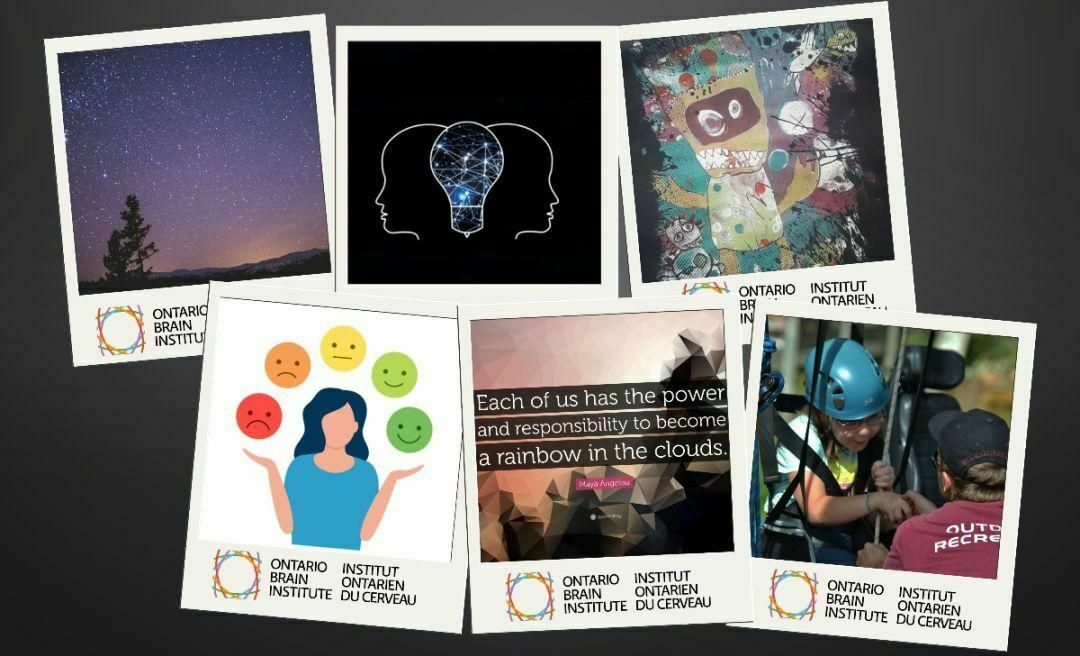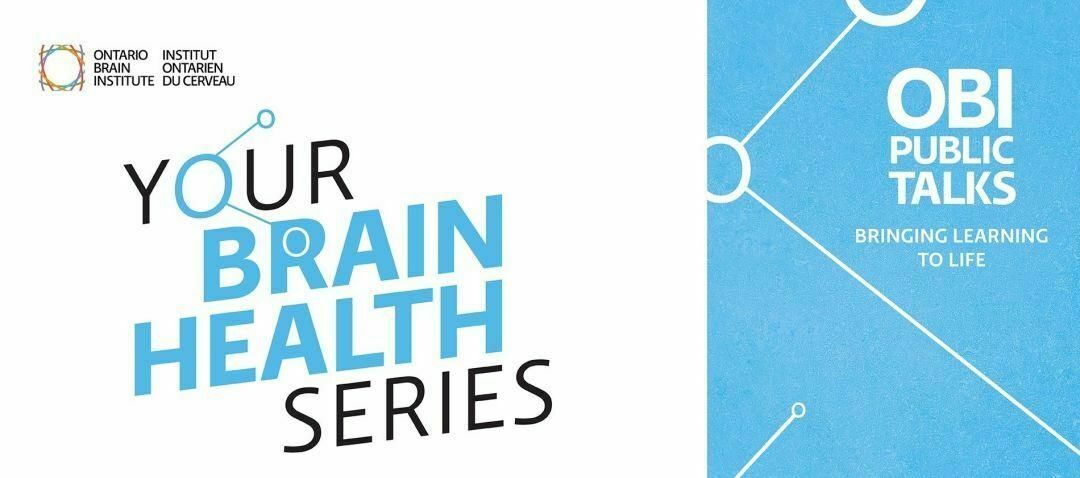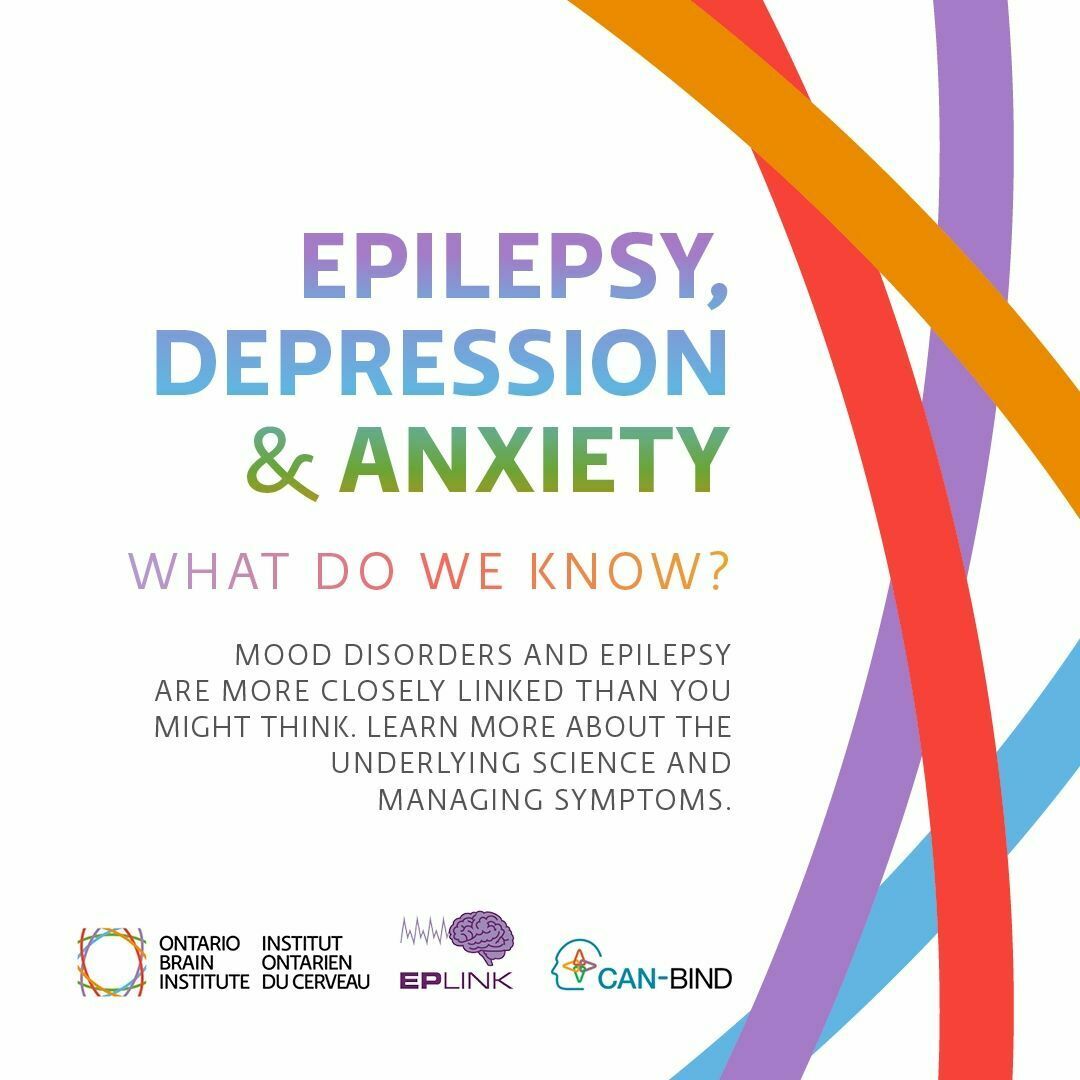Supporting Community Care
More StoriesCommunity care is a key factor in supporting brain health. Brain disorders, such as concussion, epilepsy, and depression, have societal impacts beyond the one in three individuals living with a brain condition. Family, friends, co-workers, and community are all affected and their involvement is essential in providing much needed care and support.

GEEK Program: Improving care in the community
It cannot be overstated how important community care is, as well as the detailed programming from community members that goes into providing that care. Over the past four years, the Ontario Brain Institute has supported community care through the Growing Expertise in Evaluation and Knowledge Translation (also known as GEEK) Program, with incredible partners doing impressive work within their communities to support brain health. As we look at our current GEEK cohort, they are working to ensure those impacted by brain health challenges are able to receive the care they need to thrive. Included in the 2022 GEEK cohort is:
- Jewish Immigrant Aid Services (JIAS) Toronto,
- March of Dimes Canada,
- Epilepsy Toronto, and
- Health Nexus Santé
This past year, JIAS Toronto has been supporting the mental health of Eritrean refugee community members through two sessions of mental health programming. The first session they facilitated focused on parenting and combatting stigma surrounding mental health within the community. JIAS connected this group with an Eritrean psychotherapist for their second session of programming.
“Mental health at home… before, we don’t mention mental health because we may be judged; now it helped us understand it’s normal, same [as]what happened if you have cold and flu,” says one community member partaking within the Eritrean mental health program.
These sessions allowed 26 participants to talk about how they were feeling mentally – many of whom had never discussed mental health before. Upon the program’s completion, members expressed interest in further individual and/or family counselling. JIAS is currently also working with Ukrainian and Afghan refugee communities to provide mental health programming.
March of Dimes Canada is delivering a Living with Stroke program facilitated by volunteers with lived experience, like Lara and Ron. Peer support, group motivation, and client engagement are all critical components of the Living with Stroke program as volunteers deliver resources, knowledge, skills, and confidence to manage life after experiencing a stroke. Participants are able to share their experiences free of judgement due to the diverse community engaging within this accessible programming that fosters a sense of belonging.
When asked about the Living with Stroke program, one participant said "I like that there was a stroke survivor who is also part of the group. So, I find that really, really kind of useful and helpful, just always offering [resources] that they have on the subject or anything that we ask.”
Lara and Ron have both been impacted by stroke and trained as co-leads, going above and beyond their roles to ensure community members have a positive experience.
Next, Epilepsy Toronto’s Functional Seizure Program supports community members living with functional seizures, and the results are encouraging. The six participants who have completed the program this past year have all experienced a decrease in the frequency and intensity of their seizures. All members reported positive changes relating to their sense of health and well-being.
One member of the Functional Seizure Program cohort left with this to say: “I am learning to not let my seizures define who I am and trying to live as normal of a life as possible by reintegrating things I previously enjoyed before seizures… I have learned relaxation techniques that have been helpful. I am also learning to prioritize myself by doing little things that put my well-being at the forefront of my priorities.”
The delivery of this program being virtual is an important consideration, and one reason it is so successful – to benefit and impact the most members of a community, it must be accessible. The Functional Seizure Program from Epilepsy Toronto is just getting started, as there is more important work to be done to ensure community members are continually able to access the care they need.
In the spring of this year, Health Nexus Santé launched their Indigenous Relational Science Model project to develop a resource tool to share relational Indigenous knowledge on brain development and mental health wellness that is culturally rooted and family affirming. This tool will allow Indigenous allied and primary health workers to identify how they can best transfer knowledge to families to promote brain health and connectedness.
The sessions were guided by Cree-Métis Elder Kerrie Moore and facilitated by Métis midwife Nathalie Pambrun with nine other Indigenous community members and Health Nexus support staff.
There were four virtual sessions that took place over six weeks, as well as a retreat afterwards to consolidate lessons learned. The group chose to develop a guidebook which will enable local adaptations of cultural stories and relevant community metaphors. This guidebook will be for both Indigenous and non-Indigenous human services professionals and will offer services to Indigenous clients. Additional learnings include cultural inclusion, equity, access, and safety, as well as resilience measures. “Our senses got us into trauma and our senses will get us out of trauma,” said Elder Moore.
The GEEK program continues to make incredible impacts within the brain health community by enabling organizations to generate evidence of the effectiveness of their programs and support program sustainability, spread and scale. By doing so, programs continually improve, reach more people, and enhance the brain health and wellness of Canadians. Learn more about GEEK
Photo courtesy of Jewish Immigrant Aid Services Toronto

Breaking Stigma, Building Empowerment: A Storytelling Project
For Brain Awareness Week 2023, OBI debuted the Breaking Stigma, Building Empowerment blog series. This series highlighted honest and diverse narratives from advocates within the brain health community living with brain disorders. Featuring stories told from the perspective of individuals living with different brain disorders, Breaking Stigma, Building Empowerment featured six blogs that covered topics of life after a stroke, navigating high school with epilepsy, ableism and cerebral palsy, mental health and ADHD, being diagnosed with bipolar disorder, and handling grief after losing a loved one to suicide.
Raw, emotional, and extremely valuable perspectives from these authors allow us to consider how stigma plays into our own perceptions of brain disorders and creates an opportunity to challenge pre-existing notions of how these conditions profoundly affect those living with them.
“I hope my experience is helpful to other students who are trying to navigate through the stigma of having epilepsy in high school. We are teaching our peers and our teachers how to care for others and accept people with differences,” said Kieran Shea, who contributed to the project as a blogger.
By addressing stigma, OBI aims to contribute to creating an inclusive and equitable society as well as creating spaces where individuals can share their experiences and feel empowered. In the week during which the blogs were released, close to 2248 visitors visited, on average, six pages per session, indicating that they were reading multiple blogs during their visit. And the average blog session duration was more than five minutes, showing that users were visiting the OBI blog and staying to digest the content. Read the blogs

OBI Public Talks: Your Brain Health
Each year, OBI hosts public talks designed to share the latest knowledge on brain health and offer simple tips to manage both health and wellness. Featured brain researchers and technology experts, along with community leaders and people with lived experience, are invited to speak on a range of topics from research developments to innovation to being impacted by a neurological condition.
This year’s series, titled Your Brain Health, focused on topics informed by the public on what they were most interested in learning about regarding brain health and research. Topics that were covered included Youth Mental Health, Dimensions of Care, Women’s Brain Health, and Precision Medicine. In 2022-23, OBI Public Talks reached 700 people, with over 90% of attendees gaining knowledge of the topic discussed.
“These [speakers] are so wise, empathetic, and passionate about their work, and I feel truly ‘seen’ for the first time in a long time,” said one attendee after OBI’s December 2022 public talk on women’s brain health.
To date, the OBI team has hosted over 30 public talks that have reached more than 25,000 people in 24 different countries through live events and replays. Learn more about Public Talks


New expert-led report calls for urgent changes around mental health
Mental Life in Canada – a new report from Mental Health International (MHI) – was released in partnership with OBI in March. The report called for the nation’s science and business sectors to immediately lead new discourse, and more importantly, constructive action, to advance wellbeing across the country.
The report, authored by MHI Co-Founder and Chair-Emeritus Dr. Bill Wilkerson, looks at the various trends in Canada’s science, business, and technology sectors that are establishing hopeful indicators that the prevention of the "3D" effects of mental disorders (disturbance, disablement, and [premature] death), are a plausible goal. Mental Life in Canada also serves as a legacy for the Late Honourable Michael Wilson, founder of the Mental Health Initiative and a long-time champion of mental health.
"Brain disorders, including conditions such as mental illnesses, deeply affect life areas such as a person's ability to maintain employment, physical health, financial health, and social health," said Dr. Tom Mikkelsen, OBI’s President and Scientific Director. “We must push for strategies that optimize brain health through strong, strategic coordination and collaboration between stakeholders across public and private sectors.”
The report also proposes a unified approach to prevention through "The Science-Business Roundtable on the Quality of Mental Life in Canada" – an initiative in which OBI will play a lead role.
Underscoring OBI’s leadership in team science, during his remarks at the launch event, Dr. Wilkerson said: “I am grateful to the Ontario Brain Institute for joining Mental Health International to bring this report forward this morning and take it forward in the weeks ahead.”
Read the Mental Life In Canada report
Photo: Dr. Bill Wilkerson, Mental Health International Co-Founder and Chair-Emeritus

Epilepsy, Depression & Anxiety: What do we know?
Research shows that mood disorders and epilepsy are linked – and even more closely linked than one might think. In response to this potential knowledge gap, in October 2022, EpLink and CAN-BIND, two of OBI’s Integrated Discovery Programs, joined forces to create a series of public-facing tools. A webinar, a podcast and a report were designed to educate and inform about the co-occurrence of epilepsy and depression and things people with epilepsy can do to better manage their mood disorders.
According to the report, depression and anxiety are common mood disorders in people living with epilepsy, and can impact overall health, increase feelings of stigma, and reduce quality of life. These conditions are often underdiagnosed and undertreated in people with epilepsy, and many are unsure of where to find support and more information.
In the webinar, which was attended live by 244 people and replayed 475 times since then, a panel of experts – Dr. Elaine Kiriakopoulos, Director of the HOBSCOTCH Institute for Cognitive Health and Well-Being at the Dartmouth Hitchcock Epilepsy Center; Virma Benjamin, a client of Epilepsy Toronto; and Carol La Fleur, a social worker for Toronto Western Hospital’s epilepsy program - weigh in on the connection between epilepsy and mood disorders as well as how often they occur together. And in the podcast, Dr. Kiriakopoulos continues the discussion by looking at the types of resources and support people living with epilepsy and depression can seek.
Following the talk, one attendee reflected upon what was most valuable to them from this discussion: Knowing that other people are experiencing the same things I have experienced and are presently experiencing. I once experienced a breakthrough seizure after my first one so I am always aware that it might happen even though I have been seizure free for almost four years. [Epilepsy] changed my life.”
